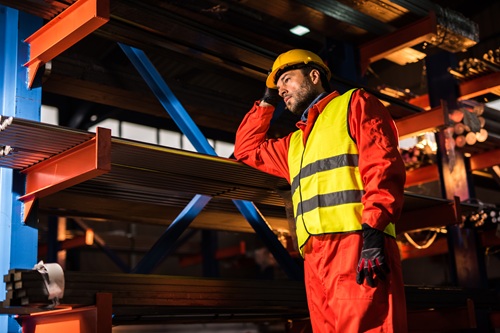Air pollution caused by frying and grilling food presents a “significant air quality and public health challenge” said a London council as it announced a new scheme to cut cooking emissions.
News
London council launches scheme to cut cooking emissions in restaurants in bid to improve air quality
Westminster City Council has just signed up one of four restaurants in the City of Westminster in Greater London. Apricity restaurant in Mayfair will be trialling a new air purification system to assess its effectiveness in reducing PM2.5 emissions and improving indoor and outdoor air quality.
The trial will also provide valuable data, says the Council, on how restaurant emissions contribute to pollution across the city, which will be shared with the businesses.
 Commercial cooking is the third-largest single source of Particulate Matter (also known as PM2.5 emissions) in London. Photograph: iStock
Commercial cooking is the third-largest single source of Particulate Matter (also known as PM2.5 emissions) in London. Photograph: iStock
Eve Seemann, head chef at Apricity restaurant in Mayfair, the first restaurant to be piloting the technology, said: “It's important research in terms of health for myself and the staff, as well as anyone visiting Mayfair and central London.
“Although our style of cooking may not be as polluting as others, it’s important to see what areas we could improve in. This data will allow us to see when there's a peak, what caused that peak and what we can do to try and remedy it. I’m glad we are part of finding a solution to reduce air pollution.”
Commercial cooking is the third-largest single source of Particulate Matter (also known as PM2.5 emissions) in London, which is estimated to account for 59 per cent of total emissions.
These emissions originate from cooking fuels such as charcoal, wood and gas, as well as food preparation methods like frying and grilling.
PM2.5 are tiny particles in the air that are small enough to travel deep inside the lungs, heart and brain. Long-term exposure has been linked to serious health conditions such as heart disease, respiratory illnesses, and even cognitive decline.
Cllr Geoff Barraclough, Westminster City Council Cabinet Member for Planning and Economic Development, commented: “These emissions from commercial cooking present a significant air quality and public health challenge in Westminster. What we learn from this pilot could help us shape future policies and ensure cleaner air for all those who live, work and visit the city.
“We want this pilot to raise awareness of air quality issues within the industry, and I hope it encourages other businesses to sign up to participate in the trial. I’m proud that we’re leading the way testing innovative solutions to make sure our communities can live in a greener, more sustainable Fairer Environment.”
To sign up or find out more information to the City of Westminster's Commercial Cooking Pilot visit this link
NEWS

Manufacturers call for full implementation of Mayfield Review to tackle UK sickness crisis
By Belinda Liversedge on 26 February 2026
Trends in wellbeing and long-term ill health are “worsening with the size of the problem growing, not shrinking,” the UK’s manufacturing association Make UK has warned.

Employers unprepared for menopause duties, research suggests
By Belinda Liversedge on 24 February 2026
Most employers remain uncertain about duties coming into force to support female workers undergoing the menopause, a new poll suggests.

Ramadan: what employers should know about supporting their workforce
By Belinda Liversedge on 18 February 2026
As Ramadan begins this week, UNISON has reminded employers to think about reasonable adjustments for their Muslim workforce’s religious observance such as fasting, prayers, and flexible schedules.



